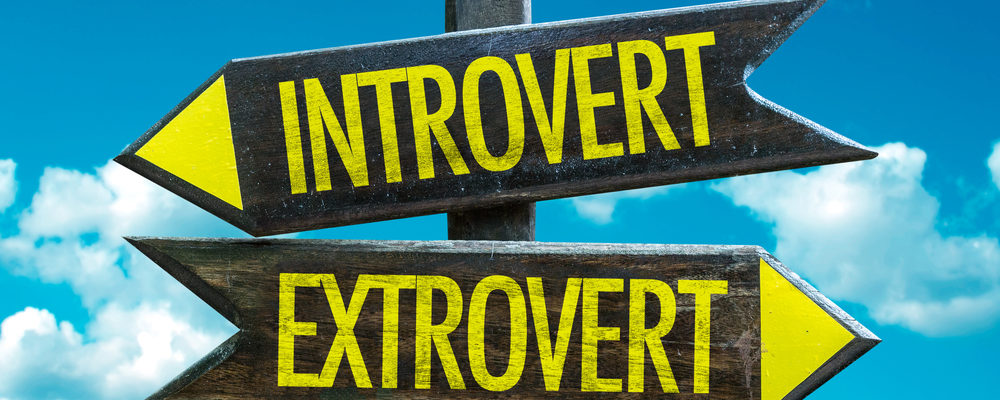Among the flood of lockdown-themed think pieces to have emerged from the media in the past month, one of the most prominent threads has been psychologists discussing how the current period of restricted social activity is affecting introverts and extroverts.
Some of the thoughts advanced in these articles have fallen along stereotypical lines – such as a recent piece from University of Melbourne professors Nick Haslam and Luke Smillie (The Conversation, 9 April 2020), which argued: “In a recent study (Jacques-Hamilton et al, August 2018), extroverts and introverts were asked to spend a week engaging in higher levels of extravert-typical behaviour (being talkative, sociable, etc). Extroverts reaped several benefits including enhanced mood and feelings of authenticity. Conversely, introverts experienced no benefits, and reported feeling tired and irritable.
“The social distancing rules to which we’re all trying to adhere are like a mirror image of this intervention. Now it’s the extroverts who are acting out of character, and who will likely experience decreased wellbeing in the coming weeks and months. Introverts, on the other hand, have been training for this moment their whole lives.”
The piece implies that introverts are automatically better equipped to sweat out the lockdown for as long as it takes – almost as though their state of being were some kind of superpower that has been looking for a moment to shine.
However, in a column entitled ‘Yes, Even Introverts Can Be Lonely Right Now’ (New York Times, 16 April 2020) Wharton organisational psychologist Adam Grant cites separate research to challenge that notion, writing: “It’s often said that extroverts get their energy from people, while introverts are energised by solitude. The data show that’s a myth.
“In a pair of studies (Fleeson et al, December 2002), people rated their energy hourly or weekly. Extroverts felt more energised when they were being talkative and outgoing – but introverts did, too. Then, in an experiment (also Fleeson et al), people were randomly assigned to act like extroverts or introverts in a group discussion. Acting extroverted energised even the introverts.”
Grant’s view that our stereotypical notions of introverts and extroverts are flawed shares common ground with a recent analysis entitled ‘Lockdown Was Supposed to be an Introvert’s Paradise. It’s Not’ (MIT Technology Review, 2 April 2020). In the piece, MIT Technology Review senior editor Abby Ohlheiser writes: “Extroverts and introverts are the subjects of many personality-driven online memes, like astrology signs or Hogwarts houses. It can give a bit of an exaggerated impression. The reality is that introverts don’t want to be alone all the time, and extroverts can appreciate moments of quiet.”
Given how lockdown may be reversing accepted stereotypes, how should leaders manage introverts and extroverts respectively?
The Institute of Leadership & Management’s head of research, policy and standards Kate Cooper says: “The trouble with trying to put people into an A or B group – a bit like the A and B personality types that were so popular around 30 years ago – is that you’ll only very rarely find extreme cases. If you think of introversion and extroversion not as separate, fixed states, but a continuum, individuals will be located at a host of different points along that sliding scale. Therefore, it’s reasonable to propose that the ways in which you manifest your introversion or extroversion hinge upon various other aspects of your personality. So it wouldn’t be helpful to label you in either/or terms.”
However, she explains: “What we can do is look at how you focus your energy. If you’re an extrovert, it’s likely that you will be eager to seek out the input of others to help you either polish your ideas or fight to get them noticed – and that you would find the very process of doing so energising. Conversely, you would expect an introvert to be more reflective and drive their energy inwards, focusing on self-examination. But if we think about the concept of flow, when we’re being the very best we can be, that suggests there are other ways of gathering energy. For example, speaking to one interesting person may be more energising than meeting with several people who aren’t challenging you in the same way – and that may hold true for both introverts and extroverts.”
Cooper notes: “As with all the management and leadership challenges we are currently facing, we as leaders must recognise that there is no single solution – for instance, ‘Check in with your team every day at nine o’clock’ – because that’s just not working. What will work is taking the time, effort and especially energy to find out, in a genuinely interested fashion, how your people are doing, how they’re adapting to the circumstances around them and what they need. Your introverts may need a bit of company, a few more small meetings and some colleagues to bounce ideas off, because that’s what works for them right now. Meanwhile, your extroverts may not want to be stuck in videoconferences all day.”
She adds: “Be guided by the feedback you are receiving from your staff, because it’s reminding you all the time about difference – and that you can’t assume that what works for you automatically works for someone else. The only way you can truly find what will work for someone else is by asking them.”
For further insights on the themes raised in this blog, check out the Institute’s resources on managing performance
Source refs:
The Conversation, 9 April 2020

